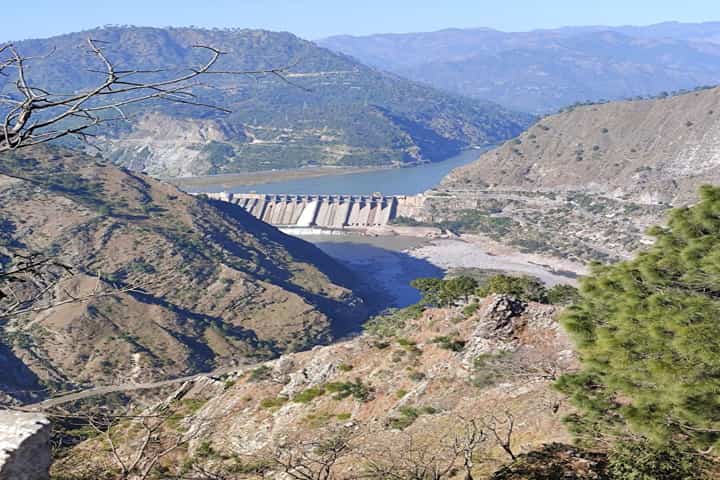

For the first time in the country, the Geological Survey of India has discovered 5.9 million tonnes of lithium reserves in Jammu and Kashmir
For the first time in the country, the Geological Survey of India has discovered 5.9 million tonnes of lithium reserves in Jammu and Kashmir which could be a game changer for the economy.
The GSI has discovered the virtual goldmine of lithium-inferred resources (G3) in Salal-Haimana area in the Reasi district of Jammu, a short distance away from the revered and famous cave-shrine of Mata Vaishno Devi in the Trikuta mountains.
The discovery has the potential of a massive impact on the political situation in the Union Territory of Jammu and Kashmir where the people are dependent on horticulture, handicrafts and tourism for their livelihoods.
Lithium is a non-ferrous metal and is one of the key components in rechargeable batteries for mobile phones, laptops, digital cameras and electric vehicles (EVs). It is also used in some non-rechargeable batteries for things like heart pacemakers, toys and clocks. Currently, India is import-dependent for lithium.
“This is for the first time that lithium reserves have been discovered in the country and that too in Jammu and Kashmir,” the Union Mines Secretary, Vivek Bharadwaj disclosed while speaking at the 62nd Central Geological Programming Board meeting at New Delhi on Thursday.
On the occasion, Bhardwaj handed over two Major Mineral Blocks Geological Reports of Lithium Blocks in Jammu Division and G3 Study (Advanced Study) of lithium, AI and titanium in the Jammu division, to J&K’s Mining Secretary Amit Sharma for initiating necessary follow-up action in the matter.
The Geology & Mining Department in Jammu and Kashmir is currently making preparations for e-auctioning of two major mineral blocks of limestone in the border districts of Rajouri and Poonch, contiguous to Reasi. Officials say that the process of finalising the availability of lithium and e-auctioning of the production in a time-bound manner had also started.
Talking to Jammu-based Daily Excelsior, Amit Sharma said that all necessary steps would be taken in collaboration with the GSI and dedicated teams would work round-the-clock to ensure that the e-auctioning of the major mineral blocks took place in a time-bound manner.
“Lithium blocks which are a rare thing and a much demanded global mineral for electric batteries which is the future, shall be explored and e-auctioned so that J&K figures on the global map so far as availability of lithium reserves in the world are concerned,” Sharma asserted.
Lithium is a metal that is known for its low density, high energy-to-weight ratio and its ability to store large amounts of energy. It is also the lightest of all metals in the periodic table of elements, and its soft, silvery-coloured metal is widely used for its heat-resistant properties.
Though it is one of the oldest elements to have been around, lithium is not in abundance on Earth like its gaseous counterparts. The metal makes up just 0.002 percent of the Earth’s crust, though arguably, that is higher than the supplies of tin, silver, gold and platinum combined. Lithium doesn’t ever occur naturally in its metallic form as it is highly reactive to the elements and minerals around it. It is found in a crystalline form alongside rocks and other mineral deposits in the Earth’s crust.
According to the United States Geological Survey (USGS), the world has currently a total discovered lithium resource of 86 million tonnes of which the annual total production is less than 82,000 MT. In the US, Elon Musk’s EV car manufacturing company Tesla is one of the major importers of lithium. With annual production of 40,000 MT, Australia retains the distinction of being the largest producer, followed by Chile (18,000 MT) and China (14,000 MT).
Of the lithium resources, Bolivia tops with 21 MT followed by Argentina (19.3 MT), Chile (9.6 MT), USA (7.9 MT) and China (5.1 MT). If the GSI calculations are correct, India with its discovery of 5.9 MT in Jammu and Kashmir alone, would now surpass China in possession of the lithium resources. J&K also possesses substantial mineral resources of sapphire in Jammu’s Kishtwar district, though it has not been exploited well commercially in the last several decades.
More recently, lithium has been a central player in the development and production of renewable energy technology. Its ability to store energy has been crucial in capturing and storing energy created through wind, solar and hydro power, and many pieces of machinery or technology have lithium batteries to maintain and distribute that energy long after the source has stopped producing energy. Solar-powered vehicles, for example, can only generate energy while the sun is out, but the lithium batteries can continue to provide previously-generated energy in absence of the sunshine.
The Defence Research and Development Organisation has offered 28 of its designed and developed weapon…
Nepal Foreign Minister Arzu Rana Deuba announced that 11 Nepali nationals being evacuated from Iran…
On June 21, 2025 (BST), Sikyong Penpa Tsering from the Central Tibetan Administration received a…
Strengthening maritime cooperation in the Indian Ocean Region, INS Teg, a frontline stealth frigate of…
Union Minister Hardeep Singh Puri paid tributes to the victims of the Kanishka bombing and…
The Baloch Yakjehti Committee marked three months since the arrest of the organisation's leaders such…